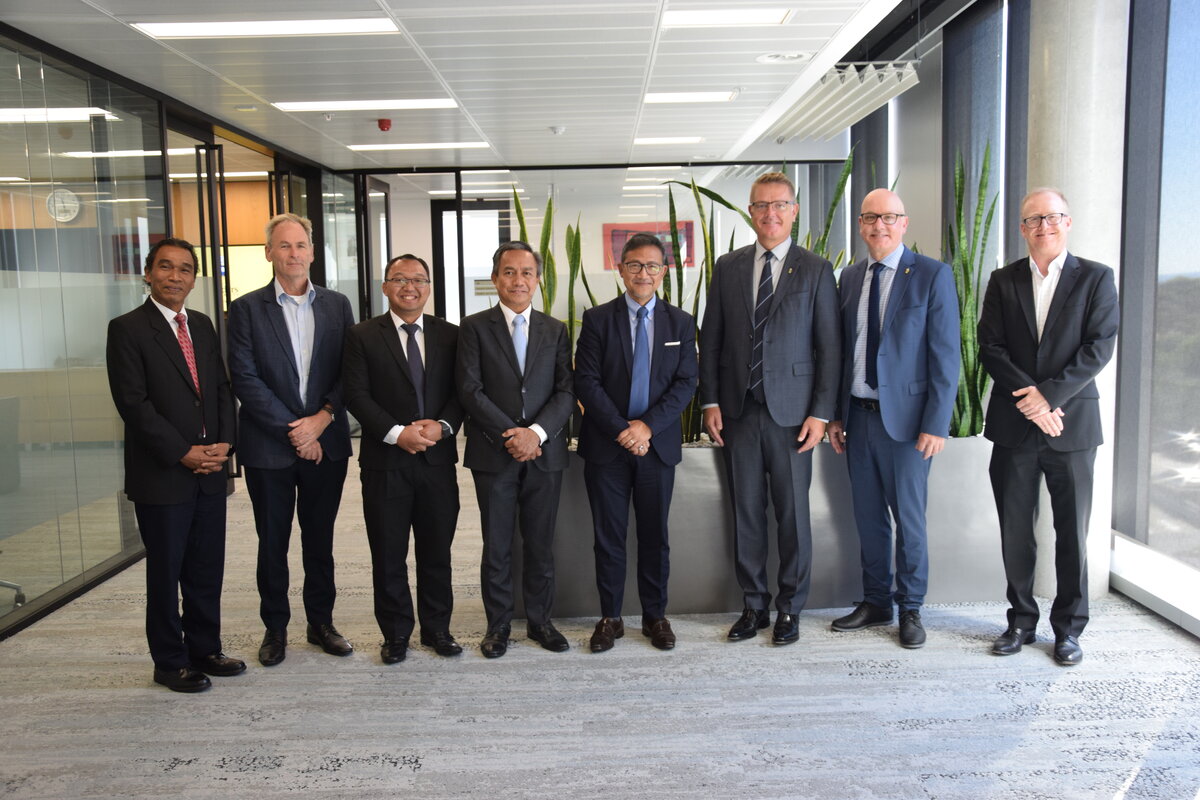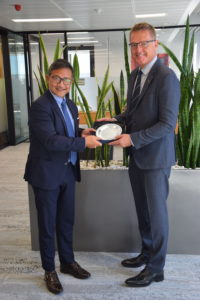
Flinders has a long and proud history of engagement with Indonesia in the areas of Indonesian language, culture and politics founded on the University’s initial contact with Indonesian students and the development of long-term collaborative links traced back to the earliest days of Flinders’ establishment in 1966.
Vice-Chancellor Professor Colin Stirling met with His Excellency Mr Yohanes Kristiarto Soeryo Legowo, Indonesian Ambassador to Australia on Monday 29 March, 2021 at Bedford Park Campus to receive an update on Flinders’ relationship with Indonesian Universities, virtual student mobility opportunities between Flinders and Indonesia during the COVID-19 pandemic and Flinders’ Indonesian Language and Culture program.
This was Ambassador Legowo’s second visit to Flinders following his initial visit in 2017, and first since the beginning of COVID-19, coinciding with Indofest Adelaide 2021, the annual Indonesian community festival.

The Ambassador commended the University on the care and support it has provided students during the Pandemic, noting particular appreciation of academic and wellbeing support for Indonesian students.
The Ambassador outlined what he believes are opportunities for the University through the Indonesia-Australia Comprehensive Economic Partnership Agreement and Indonesia’s focus on human capacity building and talent development in Indonesia, including opportunities for Australian universities to establish a presence in Indonesia for teaching and research.
The Ambassador affirmed his support for the Flinders Indonesian language program and the important role both the Indonesian Government and Australian universities have in supporting high quality language and community development initiatives in Australian secondary schools.
Over time, the passion and expertise of Flinders’ staff and students has resulted in multifaceted teaching and research relationships with Indonesian colleagues and institutions across a wide spectrum of academic disciplines including joint programs and projects in international relations, disability and social inclusion, education leadership and management, governance and public policy, development and gender studies, law, the environment, nutrition and dietetics, nursing, public health and medicine.

